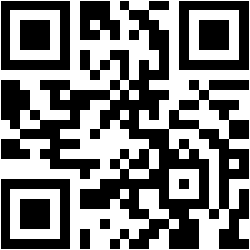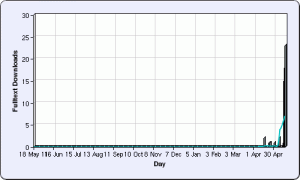I’m sitting in a meeting room at Kew evaluating the role of the Global Biodiversity Information Facility and listening to a talk on making data sticky by Rod Page. His thesis is that data are only valuable if there are identifiers to link them together. One of his examples was Museum-Analytics.org which assesses the impact of museum collections based on their online profile. The measures are very web-based citing web site impact, Facebook friends and Twitter followers as major ways of generating league tables. The Museum of Modern Art in New York tops many tables and has more than a million followers on Facebook and Twitter. This really stresses that online presence is becoming the new reality and that we need to ensure our staff and students have a strong and positive online presence if Reading University is to stay at the top table when it comes to student recruitment and grant income on top of delivering an international standard education for our students.
Can't get enough?
Categories
- Assessment & Feedback
- Digital community
- Digital Heroes
- Dissemination
- Employability
- Internationalisation
- Meetings & Events
- Placement student showcase
- Research
- Small project funding scheme
- Social media
- Staff-student partnerships
- Technology in fieldwork
- Training & resources
- Uncategorized
- Video
- Work/Academic placements
Tags
- 'Sharing Good Practice' event
- Academic Writing
- Alastair Culham
- Blackboard (VLE)
- Careers Placements Experience Centre
- Department of Art
- Department of Typography & Graphic Communication
- Digital Development Team
- Digital Literacies for Student Employability
- digital literacy
- E-books
- Existing and Emerging Biotechnologies (EEB) Framework
- Gerry Leonidas
- Guy Pursey
- iPad
- Julian Park
- Katerina Lazidou
- Letters to Santa
- Matthew Nicholls
- Nadja Guggi
- Neil Morris
- Pat Parslow
- Rachel Glover
- Research
- Sam Holton
- School E-Learning Co-ordinators (SELCs)
- School of Biological Sciences
- School of Construction Management and Engineering
- School of Systems Engineering
- Sir David Bell KCB
- Social media
- Staff training & development
- Student employability
- Student engagement
- Summer Employment Experience and Discovery (SEED)
- Teaching & Learning Showcase events
- Tee Nadan
- Undergraduate Research Opportunities Programme (UROP)
- Video
- VLE
- Wikis
- Yammer






